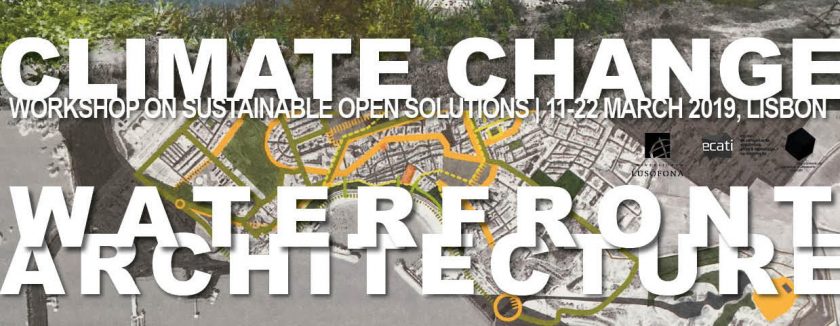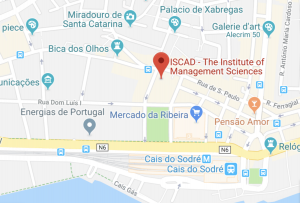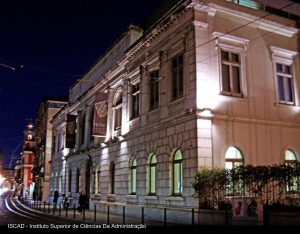
Home
S.O.S. * LISBON ULHT 2019
*Sustainable Open Solutions – Architecture – Climate Change
News
- 20.03.2019 – Don’t miss the Presentation of the Workshop Outcomes next Friday, 22nd March, 11AM, at ISCAD! Free admission, all are welcome to attend.
- 20.03.2019 – Waterfront Tagus River Gateway is now available for reading at ISSUU.
- 12.03.2019 – Book Launch: Waterfront Tagus River Gateway features the results of the 2017 EWWUD edition + the 2017 Joint Studio ULHT-UNSW @ Livraria A+A, Sede da Ordem dos Arquitetos, Lisbon, 14 Mar, 6.30 PM. Read more
- 21.02.2019 – Check here the preliminary programme for the workshop: site visits, studio work, time out and more!
- 20.02.2019 – Register till the 22nd February to enjoy the regular registration fee!
- 20.02.2019 – ULHT students, check here your unique registration fee! / Alunos ULHT, consultem aqui o vosso preço especial de inscrição!
Save the Date: Lisbon, 11-22 March 2019
Seashores, riverfronts, ocean coastlines, ports, face the challenges of climate change and its impact in this delicate and complex urban territory.
The aim is to design new built environments that find solutions for the waterfront and to find strategies for:- Climate change and the aim for zero carbon emissions
- Economic and cultural impact of tourism
- Heritage and natural environment preservation
- Economic activities and industrial impact
- Riverfront leisure and work spaces
This year the topic of our workshop focus on the impact of climate change affecting the waterfront of the Great Metropolitan Area of Lisbon.
The three selected areas cover topics of different nature that are significant to deal with the future challenges:
Alcochete Marshland
Located on the south bank of the Estuary of Lisbon, it occupies an extensive surface surrounded by an unique fragile ecosystem that hosts nearly 280 species of birds. The central government has recently approved the construction of a new Airport for low-cost flights that will refurbish and adapt an ancient military airfield on the Alcochete Peninsula. The environmental impact and the social consequences of the nearness of such intensive air traffic to the wildlife habitats in Alcochete have not been sufficiently studied and discussed. The new infrastructure has an impact of housing development, property values and job opportunities. What are the challenges to be combined? How the negative impact can be mitigated?Cascais Public Promenade
Along the rocky waterfront, a large public promenade was built for several kms in the early 20th century connecting a sequence several urban beaches and settlements located on the waterfront. This promenade effectively constitutes a popular urban public space, the most popular, with a daily large attendance of people engaged in several leisure activities. Nevertheless, the rise of the sea level directly threatens the promenade, as the beach line recedes and sand vanishes each year with the increase strength of the storms. How the new design of the infrastructure may adapt to the new patterns brought by climate change and enhance the resilience of these public spaces, to prevent further damages?Ribeira d’Ilhas World Surfing Reserve
Recently classified as the second World Surfing Reserve to be distinguished worldwide, this 4-km long waterfront area introduces a new approach to the territory. The classification of beach waves had a domino effect, introduced a new way of addressing the territory and boosted a prominent culture that attracts national and international attention. The economical development, environmental protection and community engagement has been successful. The growth of environmental protective initiatives have emerged thus enhancing a good balance between conservation and development. Ribeira’s success is based upon the protection of an imaterial event, the wave. To which extend this new approach represents an effective response to the challenges brought by climate change on the waterfront?Organization:

The workshop will take place at:
ISCAD | Instituto Superior de Ciências da Administração
Rua de São Paulo, nº 89,
1200 – 427 Lisboa
Coords: 38,708064, -9,144494


